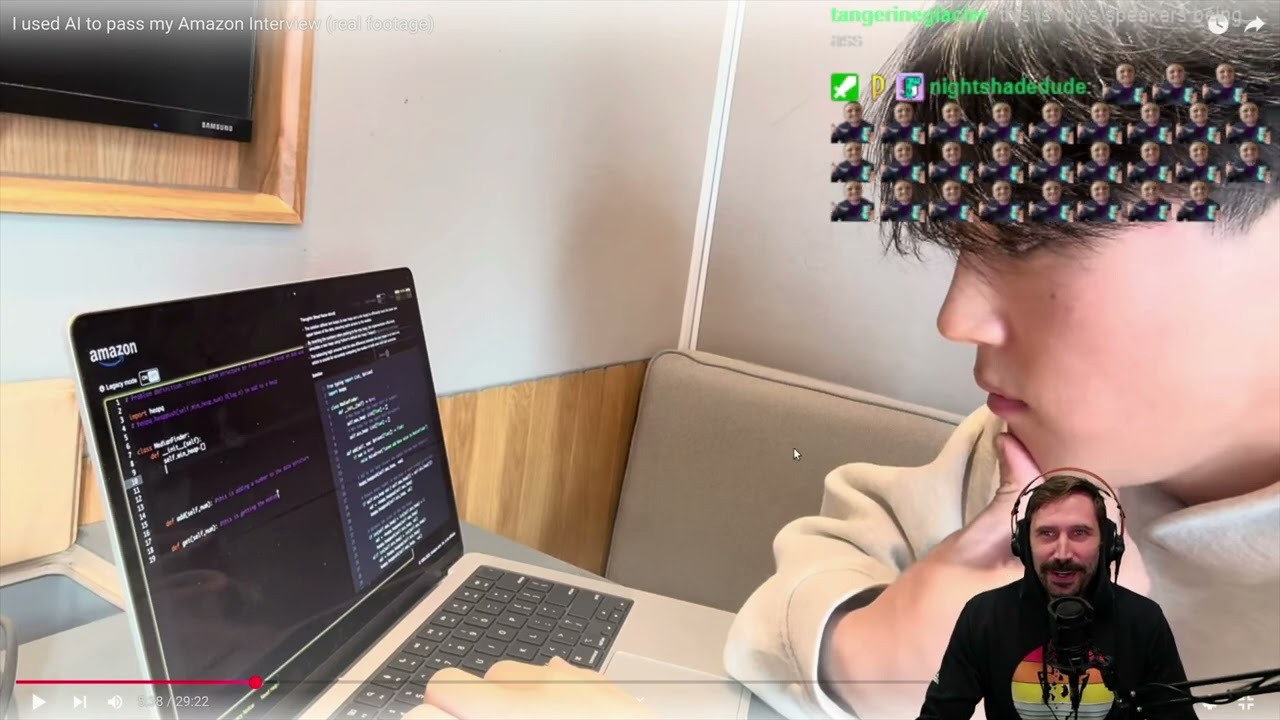The video discusses the controversy surrounding a candidate named Roy, who allegedly used AI tools during his Amazon software development internship interview, prompting Amazon to express disappointment over his actions. The host critiques the technical interview process, advocating for a reevaluation of hiring practices to better assess genuine coding skills and problem-solving abilities, rather than relying on standardized questions that can be easily circumvented by AI assistance.
The video discusses the controversy surrounding the use of AI tools during technical interviews, particularly in the context of a candidate named Roy who allegedly used such a tool during his interview for an Amazon software development internship. The video begins with a letter from Amazon expressing their discontent with Roy’s actions, stating that he had cheated during the interview process. The letter highlights Amazon’s long-standing relationship with Columbia University and emphasizes their disappointment in discovering that a candidate had used an unfair advantage to secure an internship offer.
As the video progresses, the host analyzes the technical interview process, showcasing snippets of Roy’s interview where he appears to be using an AI tool to assist him in solving coding problems. The host comments on the nature of technical interviews, criticizing the reliance on standardized questions that often do not reflect real-world programming skills. He shares anecdotes from his own experiences interviewing candidates, noting that many interviewers struggle to determine whether a candidate is genuinely proficient or simply adept at using AI tools to cheat.
The discussion shifts to the implications of AI in the hiring process, with the host contemplating whether the use of AI tools to cheat is a reflection of a candidate’s problem-solving abilities or a sign of ethical shortcomings. He argues that while cheating is generally frowned upon, the reality is that many candidates may resort to such tactics due to the pressure of securing a job in a competitive market. The host expresses concern about the future of technical interviews, suggesting that companies need to adapt their hiring practices to account for the increasing prevalence of AI assistance.
Throughout the video, the host emphasizes the need for a more effective and fair interview process that accurately assesses a candidate’s coding abilities without being easily circumvented by AI tools. He proposes that interviews should focus on practical coding skills and real-world problem-solving rather than rote memorization of algorithms and data structures. The host also highlights the importance of communication and collaboration during interviews, suggesting that these qualities are often overlooked in traditional technical assessments.
In conclusion, the video raises important questions about the ethics of using AI in technical interviews and the effectiveness of current hiring practices. The host advocates for a reevaluation of how companies assess candidates, urging them to create a more holistic interview process that values genuine coding skills and problem-solving abilities over the ability to navigate standardized questions. As the landscape of hiring continues to evolve with the rise of AI, the host believes that companies must adapt to ensure they are selecting the best candidates for their teams.
